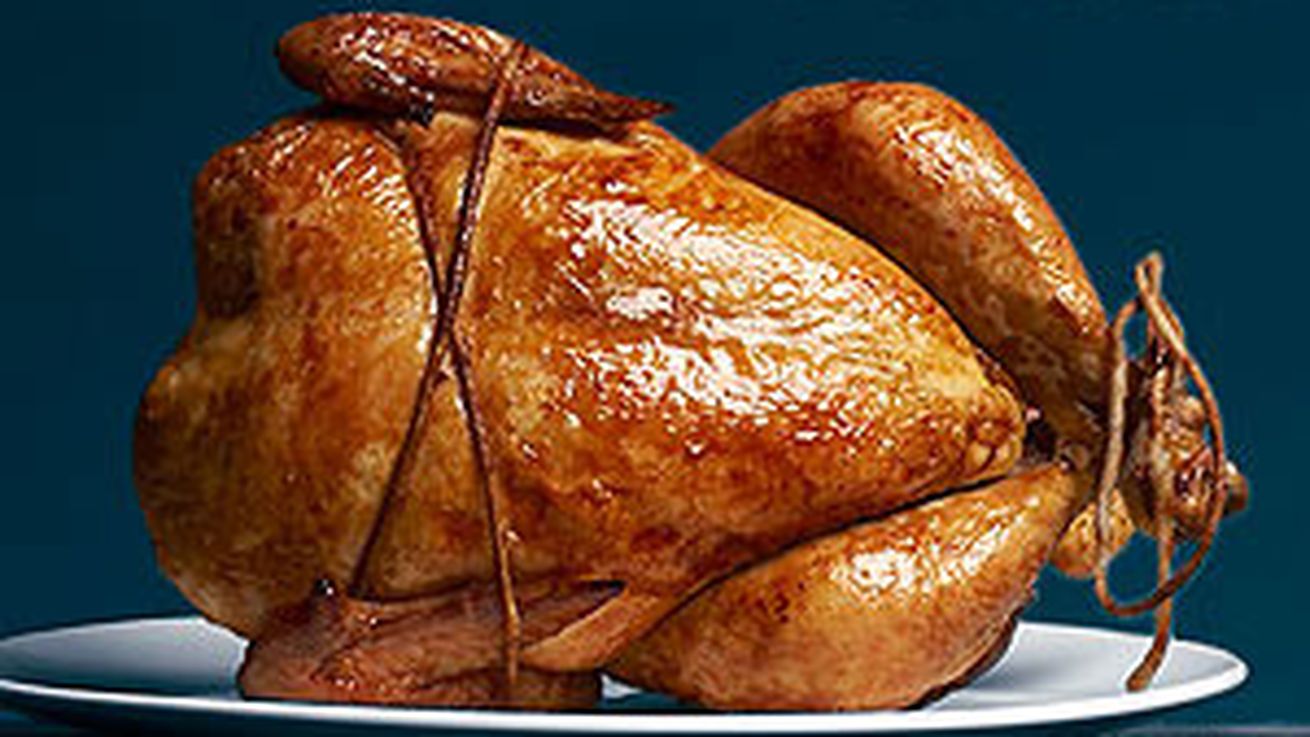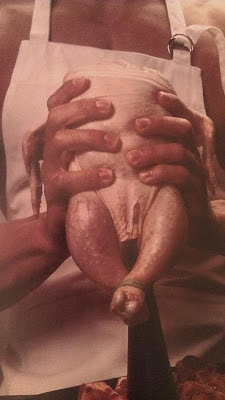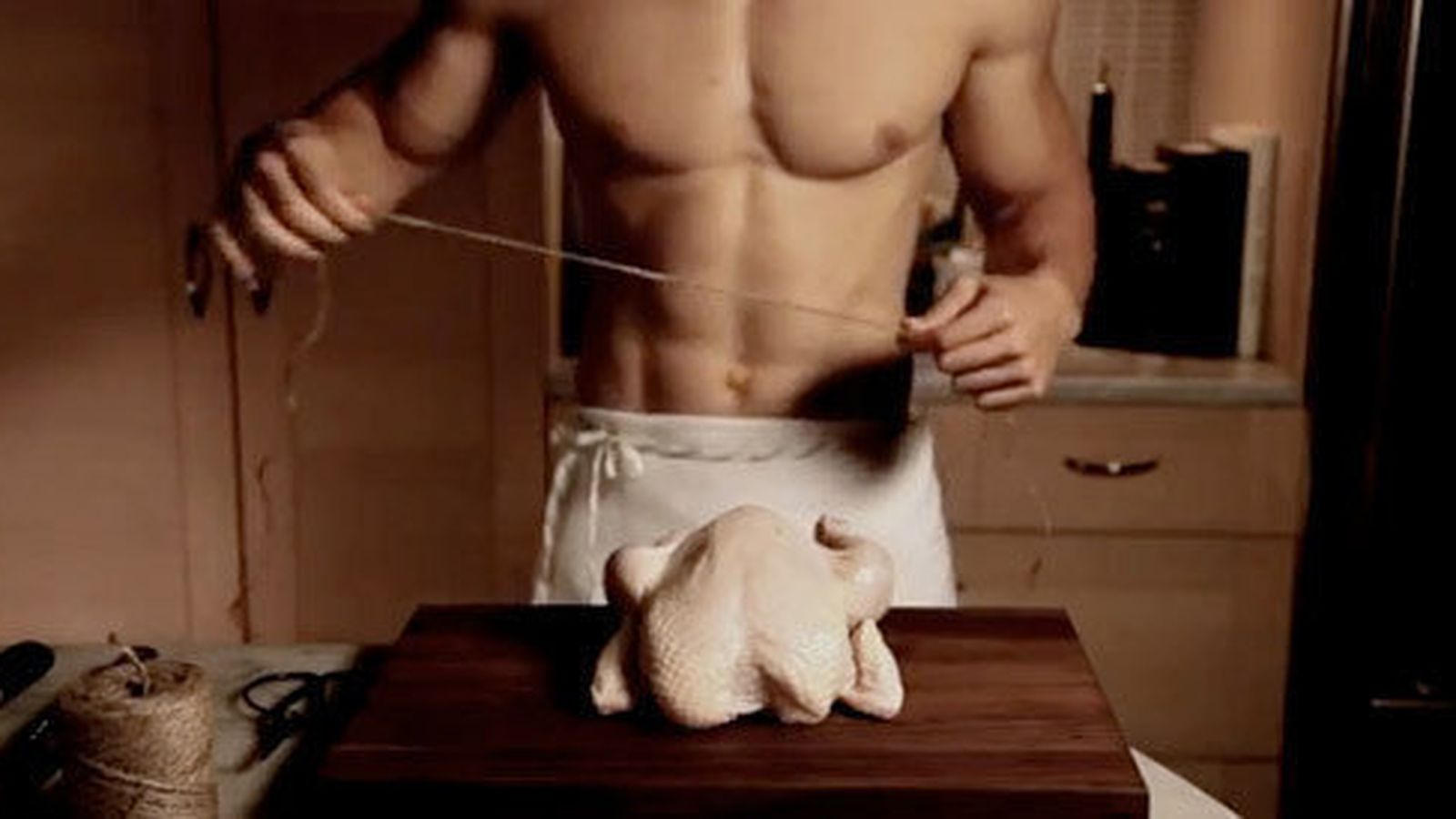
For many ecofeminists, pagans, and witches, Ostara marks the spring equinox and the beginning of the growing season in the Northern Hemisphere. With mammalian oestrous informing its lingual origin, Ostara is often associated with the birth of new generations of “livestock.” Unfortunately, celebrations marking the return of the sun often prioritize the killing and eating of newborn harbingers of spring. For all its feminine associations, equinox takes on a very patriarchal character as celebrants reinforce human supremacy, violence against animals, and the domination of nature.
Kitchen witch Kate West (2002), for instance, writes that “lamb is very appropriate” for equinox feasting, “as is humanely raised [sic] veal” (85). Indeed, for many witches like West, Ostara seems to mark a time for child sacrifice. Historically, this child sacrifice would have included the killing of foetuses in using hens’ eggs as the fertility of the Ostara season is most popularly symbolized with other-than-human eggs. Today, however, most eggs are unfertilized and remain primarily symbolic in their representation of rebirth and renewal.
Nonetheless, framing eggs as harbingers of life masks the inherent suffering and death involved in the exploitation of hens to procure these magical items. Murphy-Hiscock (2018), by way of an example, advocates ritually working with eggs to take advantage of the “abundant, fertile energy of nature” for “productive, creative energy” (89). This kind of ritual work sidesteps the questionable “naturalness” of apes consuming the ovary outputs of chickens, the vast majority of whom endure genetic manipulation, forced moulting, debeaking, lack of stimulation, ammonia-laden air, an inability to nest or roost, and extreme levels of overall stress, all of which contribute to the spread of zoonotic disease, haemorrhages, broken bones, premature death, and even cannibalism. This is a far cry from the “abundant, fertile energy of nature,” and better described as the death throws of violent anthroparchal oppression.
Some pagan and Wiccan practitioners advise “free range” eggs to avoid absorbing the energy of bird suffering, seemingly unaware of the suffering that remains inherent to egg production, regardless of source. All industrially-raised hens, after a short life in either a battery cage or an industrial barn, go to slaughter. The egg industry is also known to be especially exploitative of human labourers, many of whom are women of colour (Ducey 2018). “Free-range” schemes include many of standard practices suffered by birds incarcerated in conventional factory farming. Indeed, these schemes have been described as intentionally misleading to extract greater profit from concerned customers (Scrinis et al. 2017, Swanson 2013).
“Backyard hens,” too, must suffer the bodily exertion of constant egg production, the result of genetic manipulation that is neither natural nor sustainable for their small bodies. Indeed, this unceasing productivity eventually leads to reproductive collapse. Backyard hens who wane in production are vulnerable to abandonment or slaughter. Rescues and sanctuaries have only enough space for a few individuals cast aside from backyard operations, much less those rescued from industrial ones. Even the most kindly treated chickens (an infinitesimally small fraction of the billions of chickens exploited by humans every year) ultimately remain under human control. Humans will determine their access to resources, their quality of life, and their eventual life outcomes. This is not working with nature this is working over nature.
Wiccan leader Scott Cunningham (2007) has mused that Ostara is “a time of joyous celebration, for the killing months of winter were over” (37), but clearly this is not the case for all. Nonetheless, his observation that Ostara marks a time of moving past death and toward life could be an important aspect for vegan witchcraft to revisit. Veganism encourages mindfulness about one’s ethical and consumptive relationship with the world, commemorating life and seeking balance with nature. Rather than marking the equinox with the taking of others’ eggs, perhaps Ostara could be used to rededicate one’s commitment to the vegan path.

Indeed, the imagery of seeds, seedlings, and vitality are heavily utilized in vegan narratives and symbolism. Although eggs are centred as a traditional food for the Ostara sabbat feast, hot cross buns and seeded cakes are also recommended and may be plant-based. Cunningham (2007) also suggests incorporating edible flowers, for instance, which are just as representative of a budding spring as birds’ eggs. Greenleaf (2016) prioritizes beans, while Squire (2022) suggests nuts. Wheat, which is symbolically associated with the summer harvest, might provide another alternative. “Wheat holds magickal energy for abundance, fertility, prosperity, and protection,” Woodward (2021) explains, as it contains bran, germ, and endosperm, the nutrient-rich ingredients for life and reproduction, not unlike that of an egg. These traditions seem more in line with the affirmation of life that Ostara is meant to represent.
Works Cited
Cunningham, S. 2007. Cunningham’s Encyclopaedia of Wicca in the Kitchen. Woodbury: Llewellyn Publications.
Ducey, K. 2018. “The Chicken-Industrial Complex and Elite White Men.” Pp. 1-17, in Animal Oppression and Capitalism, D. Nibert (Ed.). Santa Barbara: Preager.
Greenleaf, C. 2016. The Book of Kitchen Witchery. London: CICO Books.
Miernowska, M. 2020. The Witch’s Herbal Apothecary. Beverly: Quarto Publishing Group USA Inc.
Robinson, S. 2022. Kitchen Witch. Shanagarry: Womancraft Publishing.
Scrinis, G., C. Parker, and R. Carey. 2017. “The Caged Chicken or the Free-Range Egg?” Journal of Agricultural and Environmental Ethics 30: 783-808.
Squire, L. 2022. Earth Magick. Brighton: Leaping Hare Press.
Swanson, M. 2013. “How ‘Humane’ Labels Harm Chickens.” Pp. 204-222, in Confronting Animal Exploitation, K. Socha and S. Blum (Eds.). Jefferson: McFarland & Company, Inc., Publishers.
West, K. 2002. The Real Witches’ Kitchen. London: Thorsons.
Woodward, L. 2021. Kitchen Witchery. Woodbury: Llewellyn Publications.
Dr. Wrenn is Senior Lecturer in Sociology at the University of Kent. She received her Ph.D. in Sociology with Colorado State University in 2016. She was awarded Exemplary Diversity Scholar, 2016 by the University of Michigan’s National Center for Institutional Diversity. She served as council member with the American Sociological Association’s Animals & Society section (2013-2016) and was elected Chair in 2018. She is the co-founder of the International Association of Vegan Sociologists. She serves as Book Review Editor to Society & Animals and is a member of the Research Advisory Council of The Vegan Society. She has contributed to the Human-Animal Studies Images and Cinema blogs for the Animals and Society Institute and has been published in several peer-reviewed academic journals including the Journal of Gender Studies, Environmental Values, Feminist Media Studies, Disability & Society, Food, Culture & Society, and Society & Animals. In July 2013, she founded the Vegan Feminist Network, an academic-activist project engaging intersectional social justice praxis.
She is the author of A Rational Approach to Animal Rights: Extensions in Abolitionist Theory (Palgrave MacMillan 2016), Piecemeal Protest: Animal Rights in the Age of Nonprofits (University of Michigan Press 2019), Animals in Irish Society: Interspecies Oppression and Vegan Liberation in Britain’s First Colony (State University of New York Press 2021), and Vegan Witchcraft: Contemporary Magical Practice and Multispecies Social Change (Routledge 2016).
Receive research updates straight to your inbox by subscribing to my newsletter.






